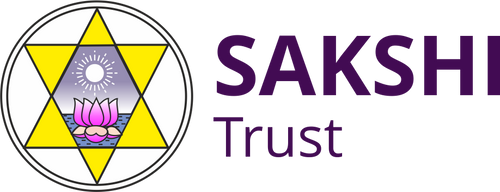Freedom is a key idea in RV; all persons whatever their external condition-men, women, married couples, householders, wandering mendicants and so on have a right to tread the paths of immortality. RV does not impose any rigid external prerequisites. RV itself does not debar anyone from reading or following RV. RV even allows the voice of the skeptic who does not believe in the existence of devās. In RV (8.100.3), a skeptic declares “who is Indra, who has ever seen him”. The rişhi gives a reasonable reply in the next verse RV (8.100.4) without invoking any threat of punishment in this world or the punishment in the life after death.
RV has no conception of a hell into which all its critics are cast. There is no great divide between the so called spiritual life and wordly life as in later times. According to RV, every being, not just the human being, develops according to his/her own self-law svadha. RV does not speak of a Cosmic Controller who controls all beings, himself staying outside of them. Every human being has to become aware of this self-law and follow the path of immortality unique to him/her. In this learning process, the help of the devās is ever there.
Knowledge constitutes the bulk of RV. The range of knowledge contained in it is so vast and so different from more traditional types of knowledge found in the books like purāņās making it very hard to get a comprehensive view of the RV. It reminds one of the proverbial blind person trying to generalise the physical form of an elephant touching only one particular part of the animal like its rope-like trunk, the iron-like tusk, leaf-like ear etc. As a first step, we can group the verses under several categories like cosmology and cosmogony, human beings and psychology, the role of devās like Agni, evil, suffering and conflicts, everyday life, the paths of immortality and so on.
The knowledge in RV is integral. It is not divided into several rigid compartments. The knowledge is like a vast net in which each topic is intimately connected to every other topic. Take any verse dealing with one of the topics mentioned above. This verse brings in many other topics also. Similarly every dominant aspect of human personality is intimately connected to the corresponding one in the cosmos. All the realms of mental operations in a man like thinking, intellect, meditation, concentration and so on, are associated with the cosmic world dyu, Heaven. Therefore when a person is thinking, he is in touch with the cosmic world of Heaven. Since all human beings are in touch with the same world, we see here a neat explanation of the phenomenon of simultaneous discoveries by persons in different continents. Again every human action also has a cosmic dimension. In every action we see the dominant contribution of the devās. Thus both devās and humans are collaborators or creators in all activities. Eventually every human being can achieve the perfection natural to a cosmic power deva. This comprehensiveness of knowledge distinguishes RV from all other spiritual books.
Verses like RV (1.10.2) clearly state that the knowledge is infinite like a vast mountain with many peaks and valleys. The acquisition of knowledge by each individual is unique. No two paths are same. As (1.10.2) describes elegantly, we cannot envision all the details in one step. From one peak only certain details are available. We have to go to a higher peak to get more details.
The analogy of knowledge acquisition to mountain climbing appears for the first time in modern times, in books dealing with the theoretical Physics only at the beginning of twentieth century.
Such comprehensiveness of knowledge is possible because the Supreme Divine or God, the One without a Second, pervades all existence, both living and non-living. There are many verses describing the spiritual presence of the transcendent God as well as of the God immanent in all existence. Both RV and the Upanishads use the same word Vaishvānara, the Universal Divine Forces, to describe the immanence of God in all aspects of creation ranging from stone to herbs to man. Again the idea of devās, the distinct powers and personalities of the One, conscious of Truth is described both at an individual level such as Agni, Indra and also at the collective level as All-Gods Vishvedevāh.
